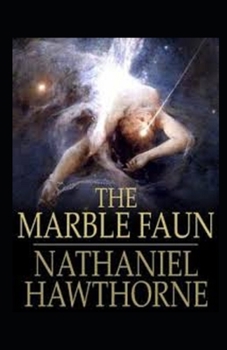The Marble Faun Illustrated
Select Format
Select Condition 
Based on Your Recent Browsing
Book Overview
The Marble Faun: Or, The Romance of Monte Beni, also known by the British title Transformation, was the last of the four major romances by Nathaniel Hawthorne, and was published in 1860. The Marble Faun, written on the eve of the American Civil War, is set in a fantastical Italy. The romance mixes elements of a fable, pastoral, gothic novel, and travel guide.
Format:Paperback
Language:English
ISBN:0881507687
ISBN13:9780881507683
Release Date:May 2007
Publisher:Countryman Press
Length:256 Pages
Weight:0.60 lbs.
Dimensions:0.6" x 5.0" x 8.0"
Customer Reviews
2 customer ratings | 1 review
There are currently no reviews. Be the first to review this work.





















